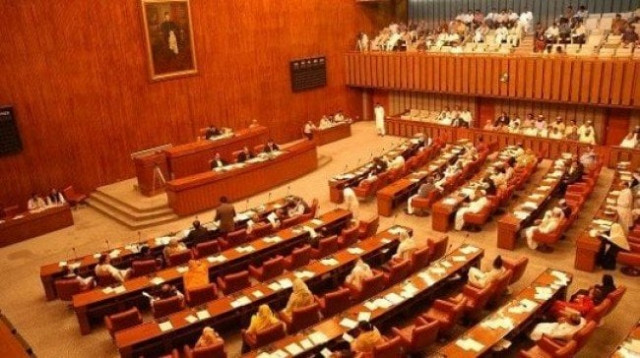Islamabad:
The Senate Committee of the Standing Committee on Poverty Reduction and Social Security has recommended to extend the capacity of the Benazir income support program (BISP) and Pakistan Baitul Maal, highlighting the need for an increase in resources and institutional support to strengthen the two initiatives.
The committee, which met in Islamabad to examine the performance, chaired by Senator Sardar Al Haj Muhammad Umer, Bisp and Baitul Maal projects and finances, attended the Senators Dost Ali Jeesar and Rubina Qaim Khani, while the senior Rubina Khalid, also participated.
Briefing The Committee of Deputations working in BISP, Senator Rubina Khalid said that 11 19th year and more officers, mainly from the Department of Education, were part of the deputation.
She clarified that no officer of the health service of the same notes was displayed in BISP.
Expressing reservations, she noted that such practices have created inevitable gaps in parent services and weakens institutional memory when the depotters returned.
She added that even if BISP intends to recruit new employees to improve features, the restrictions on the finance division due to financial constraints have delayed new appointments.
The Committee unanimously recommended to convene the Minister of Finance to the next meeting to deliberate to ensure enough funds for new recruitments in BISP.
On the questions concerning the recording process, the president of BISP said that eligibility was determined strictly through the parameters of poverty, leaving no room for recommendations or interference.
She stressed that BISP was internationally recognized as one of the most transparent social security programs, several countries seeking the expertise of Pakistan to reproduce the model.
The chairman of the committee welcomed BISP’s efforts and underlined his expansion to all the corners of Pakistan. He said BISP was not linked to any political party but was a national program.
The Committee was also informed of the Benazir Nashonuma Program (BNP), managed in collaboration with the World Food Program (WFP), which provides nutritive food, health care and quarterly exams for children, which led to a 6.4% reported reduction in food.




